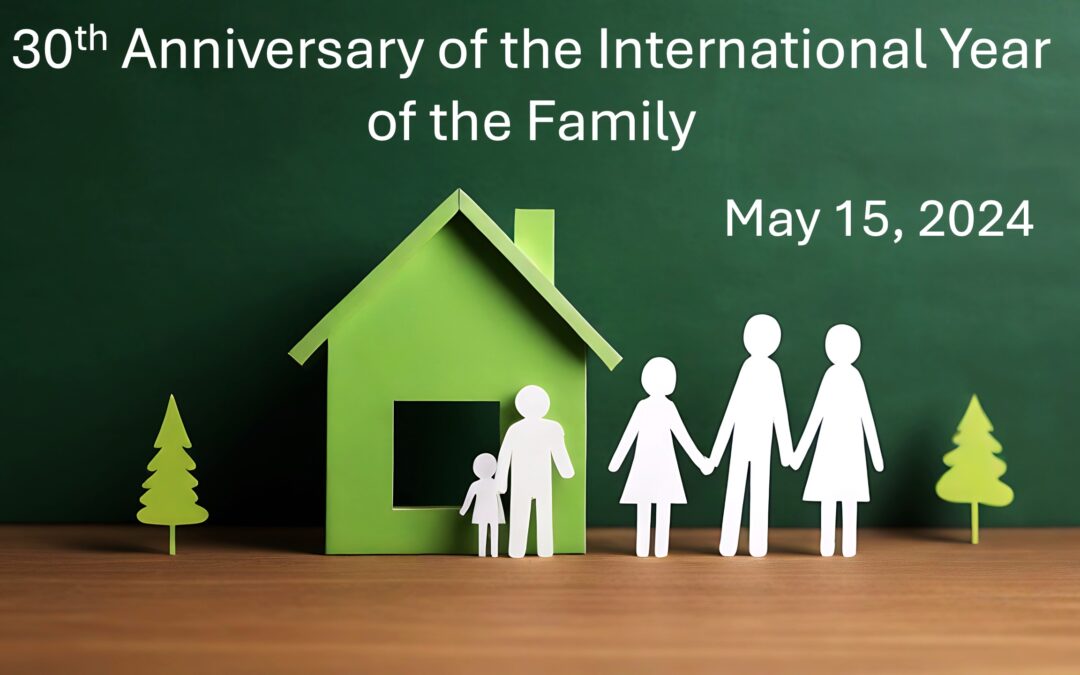Are Children a Blight or a Blessing?
During the last week of April, 2024, media outlets around the world ran stories on the U.S. Centers for Disease Control new report stating the U.S. fertility rate has dropped to a startling 1.62, the lowest rates in almost 50 years – some say a century. For those not familiar with fertility rates, 2.1 is the target number for “replacement” – meaning every woman would statistically need to have 2.1 children to sustain a population.
To many in the U.S., this sub-replacement fertility rate was met with a yawn (who cares), for some, a time for celebration (Yes! Fewer children to destroy the planet and consume resources), and for others, including United Families International, a sign of impending economic downturn and societal upheaval.
Some would argue: “Well, there are many countries in the world with a far lower sub-replacement fertility rate” – and they would be correct. Total Fertility rate by country (2023):
Spain – 1.39
Germany – 1.36
Italy – 1.21
China – 1.69 (but no one knows for sure)
Singapore – 1.24
Taiwan – 1.09
South Korea – .55 (lowest in the world)
More startling statistics:
- Sixty percent of the world’s population currently lives in a country with sub-replacement fertility rates.
- When a country reaches a 1.4 fertility rate, they will lose one-third of their population every generation (about 25 years).
- For every 100 South Koreans there will be just 5.9 great grandchildren, in total, meaning a 96% population collapse. (How many great grandchildren do you have or project you will have? I’m guessing it’s a vastly different number.)
There are countries who are actively working to curtail fertility free fall. The country of Hungary, for example, spends five percent of their GDP on pro-natalist programs to increase their country’s fertility. To put that level of spending (5% of GDP) into perspective, the U.S. government currently spends 2.5% of its GDP on military and defense spending. But the question is: “Do these programs/policies work?” The short answer is, “not very well.” Once a country slides into an ethic and a culture that rejects childbearing, it is very difficult to change.
With that in mind, I wanted to make you aware of some relevant and important online events happening on Wednesday, May 15.
These events are free for viewing as part of the UN 30th Anniversary of the International Year of the Family. I realize this is very short notice, but I strongly encourage you to take some time to register and view. You can register and get the links even after the event has started and the events will be recorded and available online afterward. Here are the flyers for these events for your review: “Superabundance“, and “The Family and the Future of Humanity.“
1. Wednesday, May 15, at 2 pm (Eastern Daylight Time)
A conversation with Marian Tupy, co-author of the book “Superabundance.” This is a must watch, especially for individuals who fear having children because of fears of global warming or too many humans exhausting the earth’s resources. This conversation will prove to you the situation is the exact opposite. Marian Tupy provides one of the most enlightening, positive, and reassuring perspectives you might hear all year! This is a UN side event sponsored by the UN NGO Committee on the Family and UFI is actively involved with this committee. Register here:
https://docs.google.com/forms/d/e/1FAIpQLScE2PLLlYPOd0w7gTv15RAGEROYxjNQxyDKlz8Ntv07fMZyow/viewform
2. Wednesday, May 15, 3-5 pm (Eastern Daylight Time)
“The Family & the Future of Humanity” An exciting UN side event to commemorate the International Day of the Family, with a long list of excellent pro-family speakers. UFI is a co-sponsor of this event and the event will be broadcast live on UN WebTV at this link: https://webtv.un.org/en The recorded event will also be stored at that link for later viewing (search for events by title).
I hope you all take the time to tune into these exceptional events; you’ll be glad you did! Again, these events are free for viewing.
Let me conclude with a reminder: one of the most “Pro-family” things you can do is bear children and create strong and stable marriages and families!
 With gratitude,
With gratitude,
Wendy Wixom, President
United Families International

